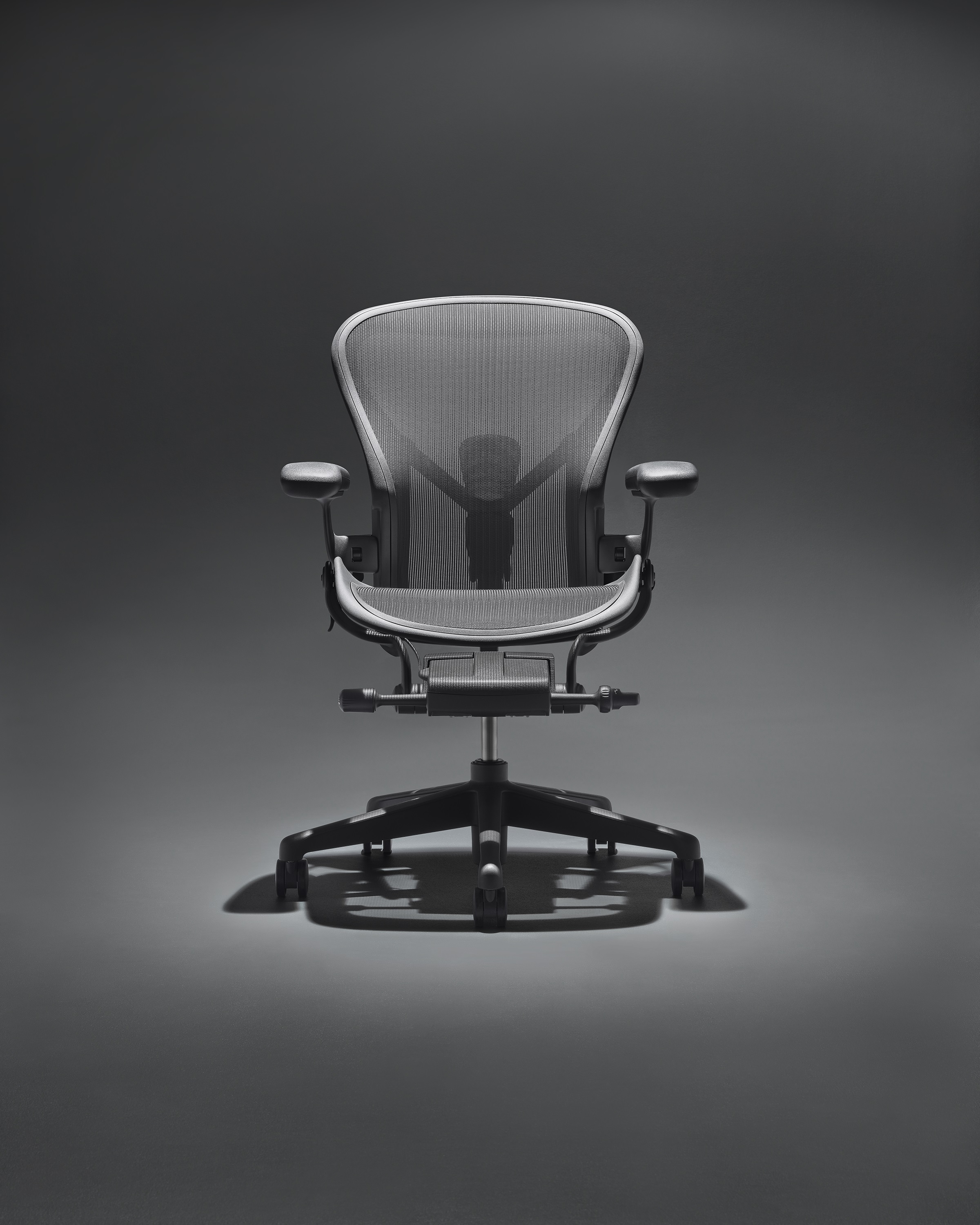Our Designs

This fall, Herman Miller announced that all Aeron Chairs will contain ocean-bound plastic. The company also introduced a new color, Onyx Ultra Matte, which contains up to 2.5 pounds of recycled ocean-bound plastic per chair. These material changes in the Aeron Portfolio are projected to save the ocean from over 150 metric tons of plastic annually - equal to approximately 15 million single-use plastic water bottles1.
As part of the company’s ongoing commitment to sustainability, Herman Miller joined NextWave Plastics in 2018 to address the growing problem of plastic entering our oceans. Since then, the Herman Miller has been working with suppliers all over the world to divert harmful plastic like fishing nets, plastic jugs, and bottle caps from reaching the ocean.
Aeron is part of a growing list of product and packaging solutions with ocean-bound plastic.
Building on Aeron’s legacy
Aeron’s legacy of sustainability and innovation continues to evolve since its introduction nearly 30 years ago. Designed by Bill Stumpf and Don Chadwick in 1994 and remastered in 2016, it first proved pioneering in both ergonomics and material innovation, without relying on the standard use of foam, fabric, or leather found in most office chairs at the time.
The Aeron Chair is Herman Miller’s top-selling seating solution and has received a variety of awards and recognition including the Good Design Award (GDA) from the Chicago Athenaeum Museum of Architecture and Design, FIRA (Furniture Industry Research Association) award, the IDSA Designs of the Decade award, and is part of the permanent collection of MOMA. It was also the company’s first product to receive the industry-leading Cradle to Cradle V3 Silver Level certification, assessed on environmental and social performance.
Making the best better for Earth
The ocean-bound plastic used in Aeron is currently sourced from India and Indonesia, which are two of many locations where Herman Miller and other NextWave member companies are creating demand and establishing a supply chain for this material.
When plastic waste builds up in coastal cities, suppliers work with local pickers to collect the plastic. Once collected, the material is ground, washed, and pelletized. From there, it is sold to manufacturers who test and re-engineer the plastic to incorporate into products.
By sourcing ocean-bound plastic from these areas, the companies are making both economic and social impact by supporting local communities and employing individuals who make a living collecting mismanaged waste near the shoreline.
Depending on the configuration, the ocean-bound plastic in Aeron can be found in the frame and tilt covers of the chair and contains between 0.5 and 2.5 pounds (226.8 g and 1.13 kg) of the material per chair, equivalent to approximately 23 to 114 plastic water bottles. The new Onyx Ultra Matte colorway contains the highest amount of ocean-bound plastic at almost 2.5 pounds (1.13 kg) per chair. All chairs within the Aeron Portfolio are up to 90% recyclable3 and composed of over 50% recycled content 2.
Expanding material expressions
Aeron is available in a palette of four material expressions centered on elements pulled from the Earth. Onyx is a dramatic ultra-black shade intended to modernize Aeron. Graphite is a distinctive dark gray, with a classic textured finish. Carbon offers a balanced neutral that works equally well in warm and cool environments. Mineral is the lightest and illuminates Aeron's finer points, ideal for open floorplans and spaces. Each component of the chair was thoughtfully designed, creating a fundamentally harmonious color palette.
Aeron’s new Onyx Ultra Matte colorway will be available to order starting in September 2021, in North America. All Aeron colors and configurations will be updated to contain ocean-bound plastic and will be available to order soon globally. Other use-cases with ocean-bound plastic including OE1, packaging, and the Revenio textile collection are in production now.
To read more about Herman Miller’s efforts to integrate ocean-bound plastic in its products and packaging, read the full press release here.
1 Based on annual sales forecast
2 Based on top-selling global model
3 Based on available recycling facilities